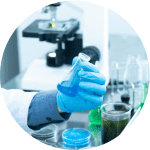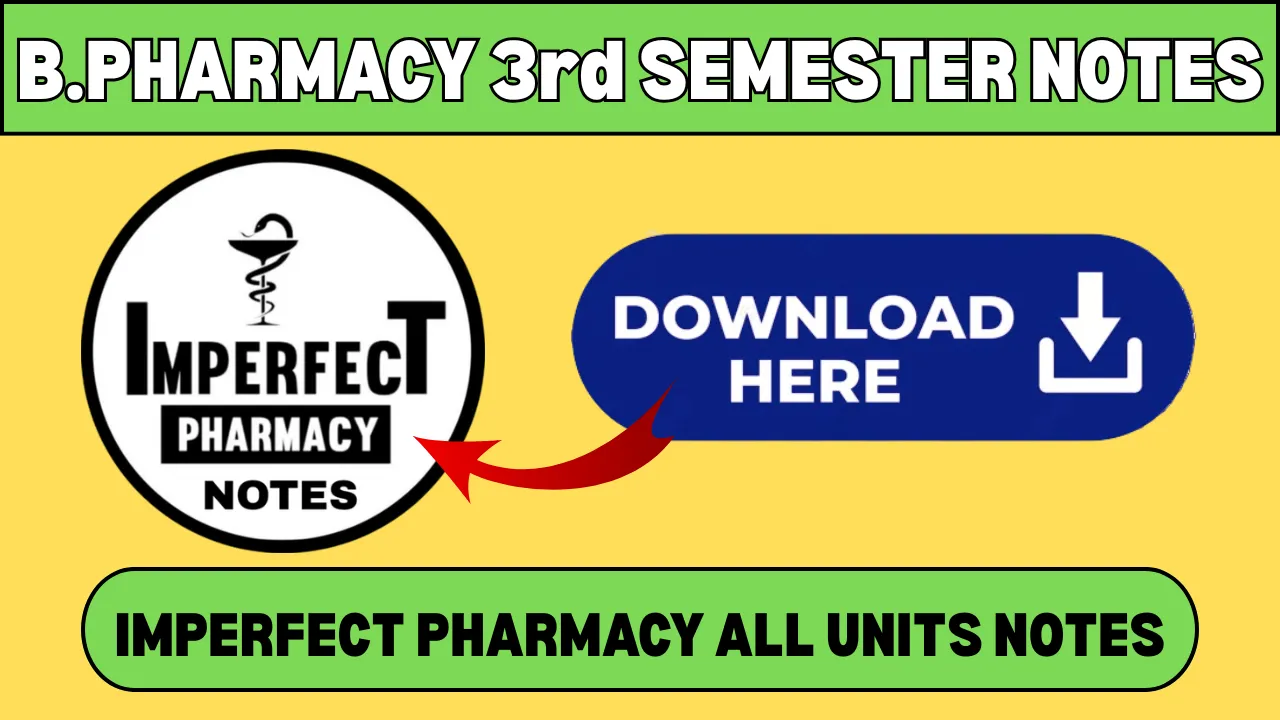B. Pharmacy 3rd Semester Imperfect Pharmacy Handwritten Notes PDF
PHARMACEUTICAL MICROBIOLOGY

What It Is:
Pharmaceutical microbiology is a specialized field that studies microorganisms within the context of the pharmaceutical industry. It focuses on ensuring product safety and quality by controlling microbial contamination.
What it does:
Sterility testing of injectables, eye drops, and other sterile products.
Microbial limits testing to control contamination in non-sterile medications.
Evaluating preservative effectivenessin preventing microbial growth.
Monitoring pharmaceutical environments to minimize contamination risks.
Why it matters:
Protects patients from infections caused by contaminated products.
Maintains the effectiveness and stability of medications.
Ensures compliance with strict regulatory standards.
PHARMACEUTICAL ENGINEERING

What It Is:
Pharmaceutical engineering is a unique engineering discipline focused on transforming drug discoveries into safe and usable medications. Engineers in this field handle the design, development, and optimization of the entire drug production process.
What It Dose:
Creating and improving drug manufacturing systems.
Devising innovative drug delivery methods (e.g., pills, injections, topical solutions).
Upholding strict quality control to guarantee safe medication.
Complying with the rigorous regulations of the pharmaceutical industry.
Why It Matters:
Pharmaceutical engineers play a critical role in ensuring patients have access to effective, affordable, and safely produced medications.
PHARMACEUTICAL ORGANIC CHEMISTRY 2

What It Is:
This course delves into organic chemistry reactions and structures relevant to pharmaceuticals.
Topics:
Aromatic compounds (benzene-like molecules)
Phenols and amines (used in drug synthesis)
Aromatic acids
Fat And Oils
Heterocyclic compounds (found in many drugs)
Why It Matters:
Basis for designing new drugs
Helps understand how drugs work in the body
Crucial for drug quality and safety
PHYSICAL PHARMACEUTICS 1

What It Is:
Physical Pharmaceutics I applies physics and chemistry to the study of drug design and behavior.
What It Dose:
How drugs exist in different states (solid, liquid, gas)
Factors affecting how drugs dissolve
Interactions between different surfaces in drug formulations
How the flow properties of drugs impact design
The role of tiny particles in drug delivery
Why It Matters:
Helps design effective dosage forms (tablets, injections, etc.)
Understands what causes drugs to degrade
Predicts how drugs will interact with the body
HUMAN VALUE AND PROFATIONAL ETHICS

What It Is:
Human Value: Our internal compass, Beliefs like honesty, compassion, and fairness guide our decisions.
Professional Ethics: Workplace code of conduct: Standards ensuring responsible and trustworthy behavior within a profession.
The Link: Personal values shape how we apply ethics in our work.
Why It Matters:
Builds trust with colleagues and the public.
Protects those we serve.
Maintains a strong reputation within your field.


Super
Very 👍